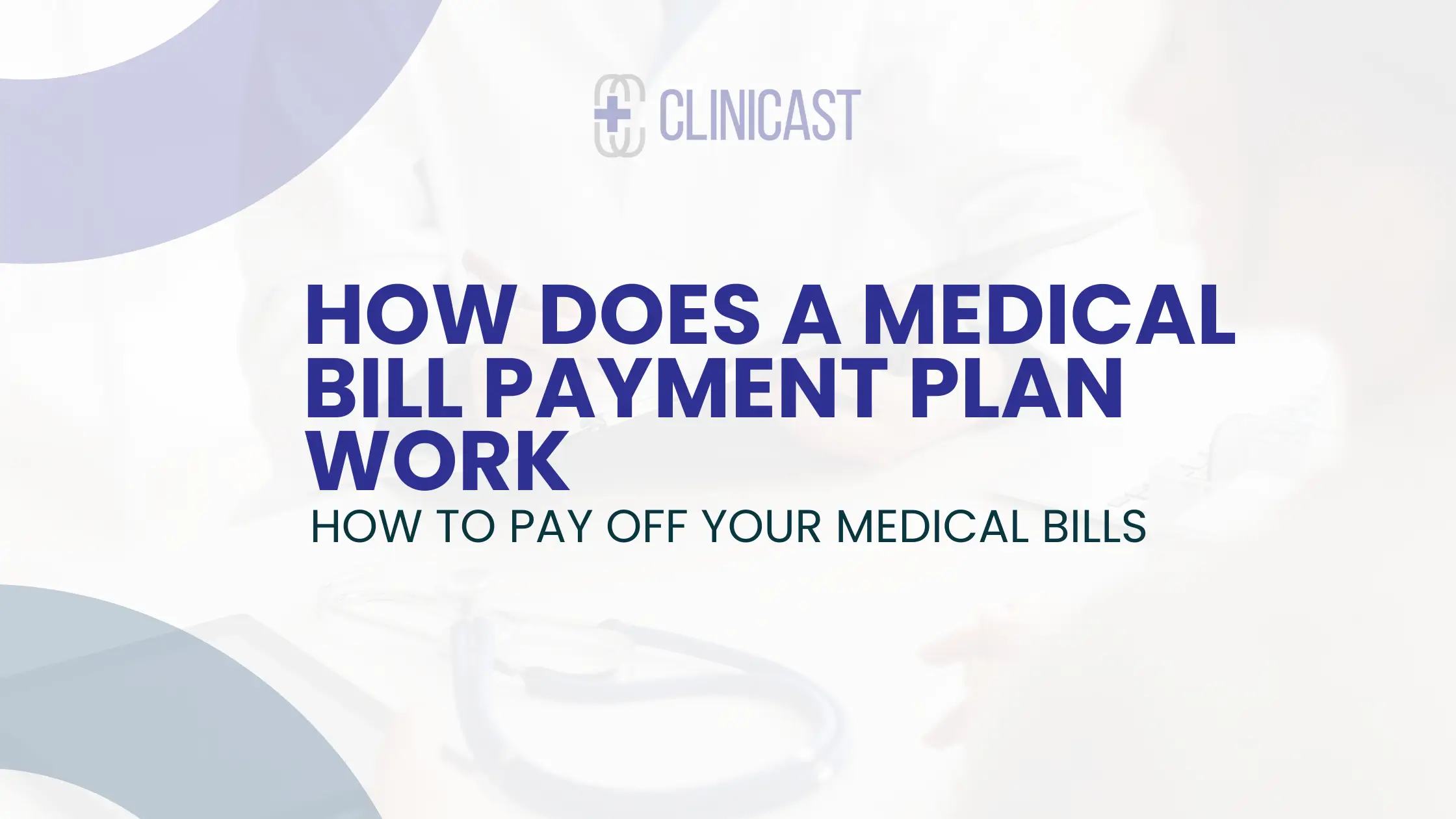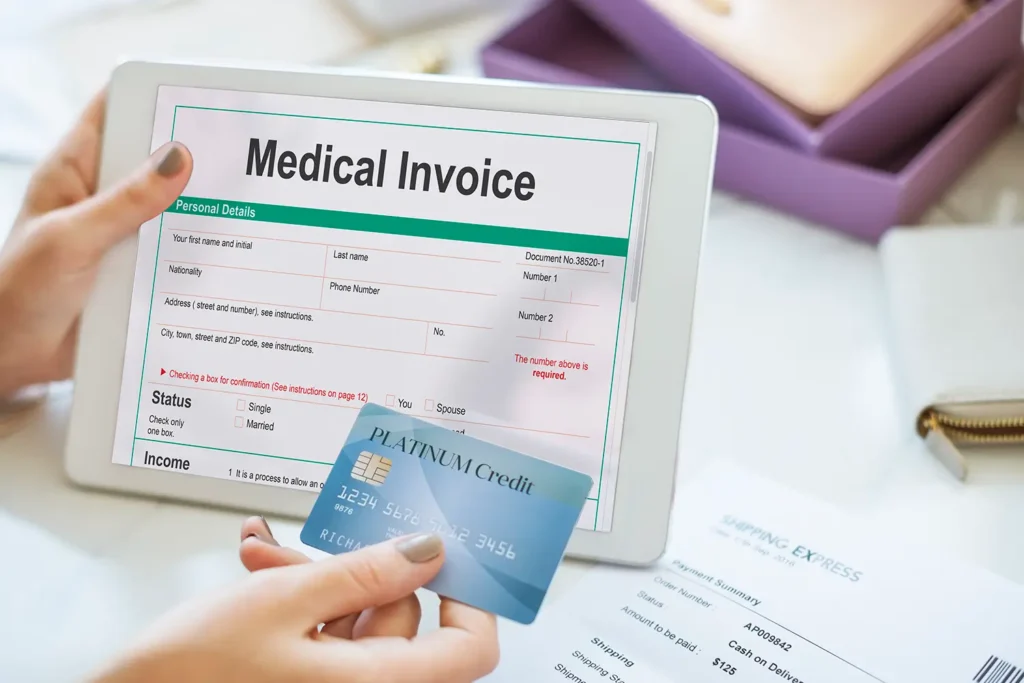When you receive a medical service, and your care receipt shows a big owed amount, you wonder how you are going to cater to that all at once. If a healthcare insurance provider covers you, you might just go away as the provider will take care of the claim, but if not, you might need to consider a medical bill payment plan to pay your medical debt.
A medical bill payment plan is an arrangement between you and your doctor or other medical providers to pay off your medical debt over time. This type of plan can be helpful if you have a large medical bill you can only pay some at a time.
Under a medical bill payment plan, you will make regular payments to your provider, and the provider will agree not to send your bill to collection agencies. This can help you avoid late fees and interest charges, and it can also help you maintain a good relationship with your provider.
If you are considering a medical bill payment plan, keep a few things in mind. This includes making a down payment when you sign up for the plan, making regular payments to avoid defaulting on the plan, paying a higher interest rate than you would if you paid your bill in full, and finally, you should make sure that you understand the terms of the plan before you sign any paperwork.
Keep reading to know how medical payment plans work and how to avoid complexities arising in the payment process.
Dealing with Medical Bill Payment Plans
Medical billing payment plans enable patients to pay off the medical debt they owe against the medical services they received over a specific period of time instead of paying them all at once. These plans can vary depending on the state requirements, insurance payers, and the healthcare services received. Here’s how payment arrangements are made for variable healthcare services.
Acute care
The types of services that are short-term and based on the services provided in emergencies due to urgent healthcare needs are referred to as acute care. Usually, patients make appointments and pay their service charges directly at the healthcare provider’s office while the service is being completed.
There’s no credit or insurance check at acute care services as it has no interest or payment plan involved.
Semi-Elective Payment Plans
In these plans, you need to make an appointment with the healthcare provider, and you may also need to provide a percentage of the payment plan upfront. Typically, providers do not offer such kind of plans directly to patients. For this reason, it is important to contact a third-party provider to make an interest-free cheaper plan instead of making a plan using your credit card, which later adds interest to your final bill.
Other than payment plans, you also can look for financing options through provider referrals. This requires certain requirements, such as a strong credit score. If you plan to go for the financing option and your credit score needs improvement, you may face difficulty qualifying for approval.
How Hospitals Help Patient with Medical Bills
While hospitals have always been struggling to collect payments from patients, the problem has become more acute in recent years as patients have shouldered more of the burden of their healthcare costs. In response, hospitals are turning to new ways to help patients pay their bills. One way that hospitals are helping patients is by offering financial counseling. This counseling can help patients understand their bills and find ways to pay them off. Counselors can also help patients negotiate with insurance companies and connect them with resources like financial assistance programs.
Hospitals are also offering more flexible payment options for patients. These options can include allowing patients to make smaller monthly payments or working out a payment plan that fits the patient’s pocket and healthcare needs.
How to Avoid Unpaid Medical Bills
Whether you have a high deductible health plan or you’re on a tight budget, there are often times when paying your medical bills in full just isn’t possible. But if you’re not careful, letting your medical bills go unpaid can have some serious consequences.
First, your credit score could suffer if you don’t pay your medical bills. This is because medical debt is often reported to credit agencies, and if you have a lot of unpaid debt, it can negatively impact your score. Additionally, if you don’t pay your medical bills, you could be sued by your healthcare provider. And if you lose the lawsuit, you may be responsible for paying the full amount of the bill, plus interest and legal fees.
So what can you do to avoid letting your medical bills go unpaid?
First, try to negotiate with your medical providers. If you’re unable to pay the full amount, they may be willing to work out a payment plan with you. You can also try to get help from a medical bill advocate, who can negotiate on your behalf.
There are also a number of financial assistance programs available that can help you pay your medical bills. And finally, if all else fails, you can always consider filing for bankruptcy. This should be your last option, but it would be the only way to get away from your medical debt.
Conclusion
Healthcare expenses can easily be piled up if not taken care of timely. If you think you won’t be able to pay your healthcare service fees, instead of avoiding them, talk to your healthcare provider. Your care provider can provide a medical bill payment plan that will work for your benefit and help you pay your medical debt regularly at intervals without any additional interest rate. Check on your options and ease your healthcare burden. You should also check our professional billing services.




